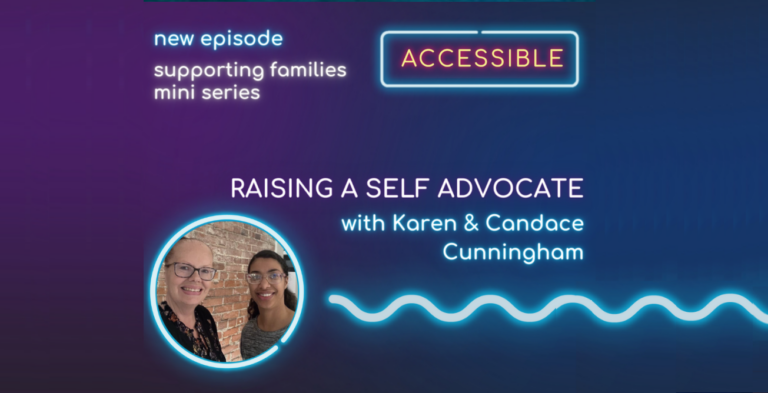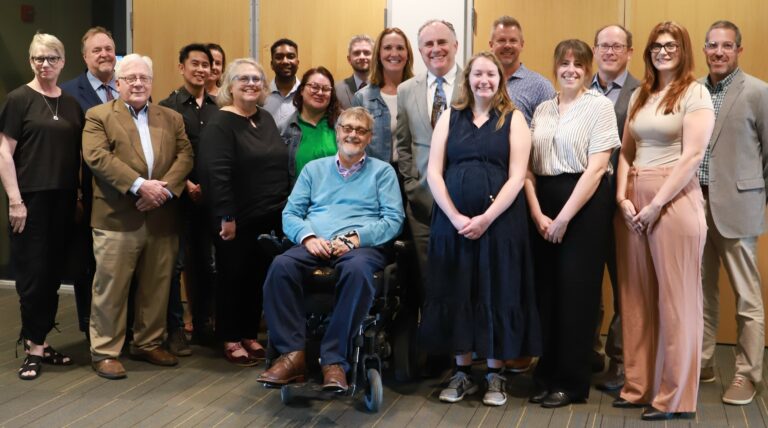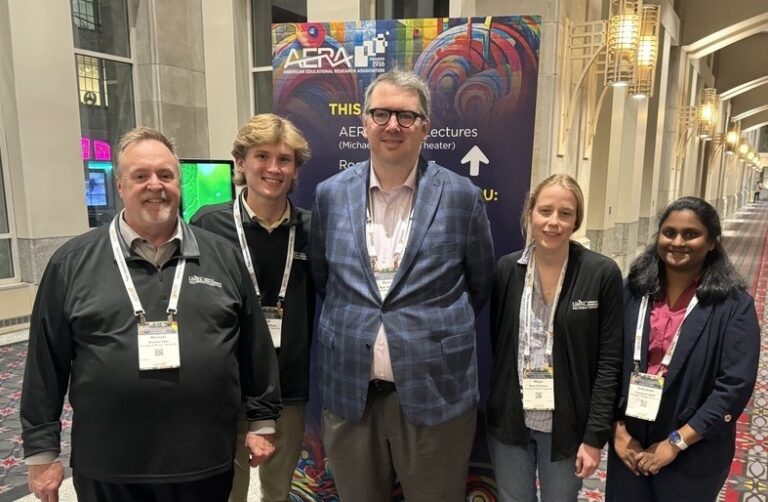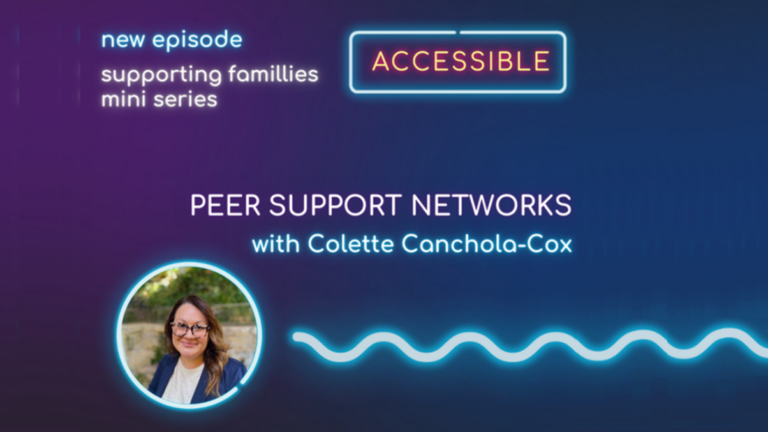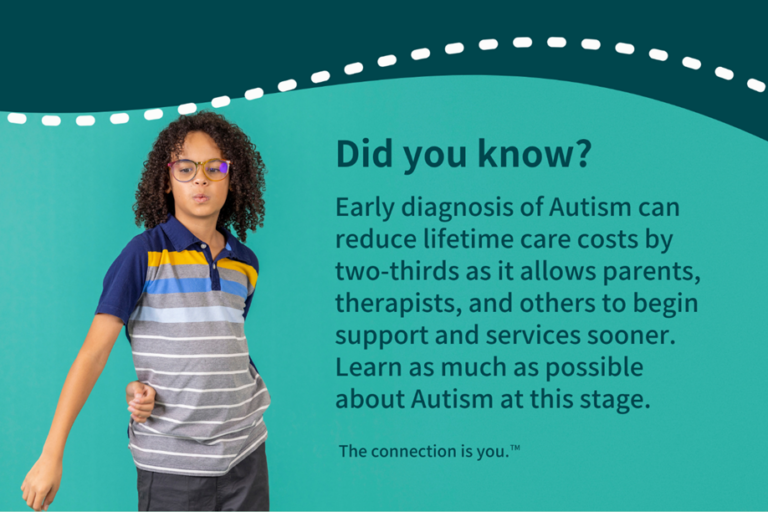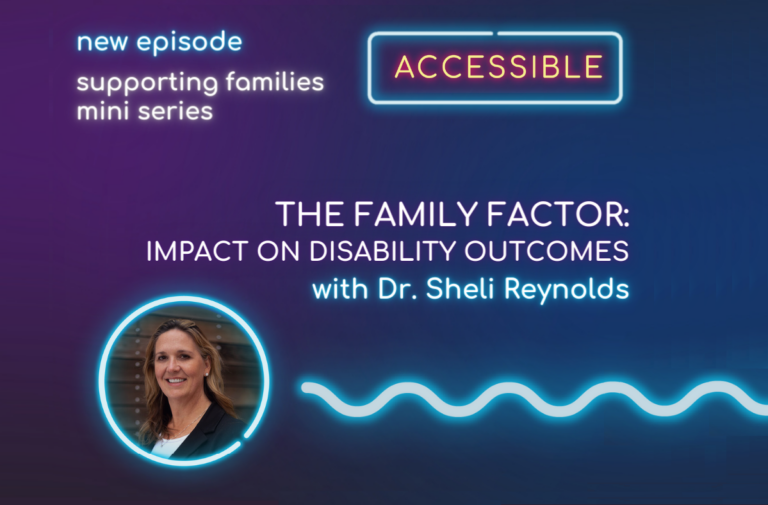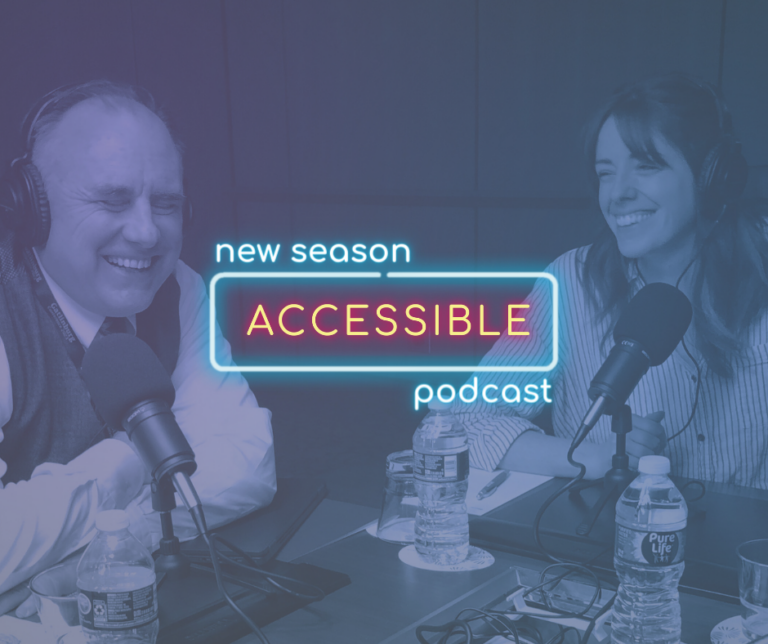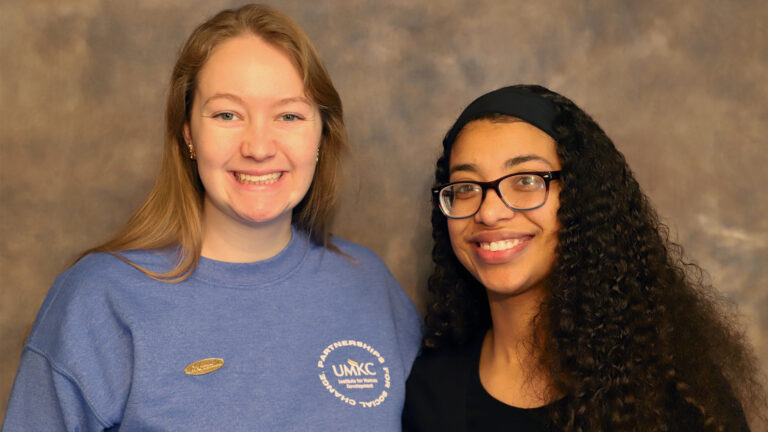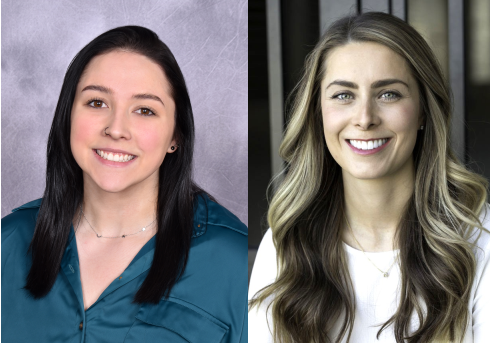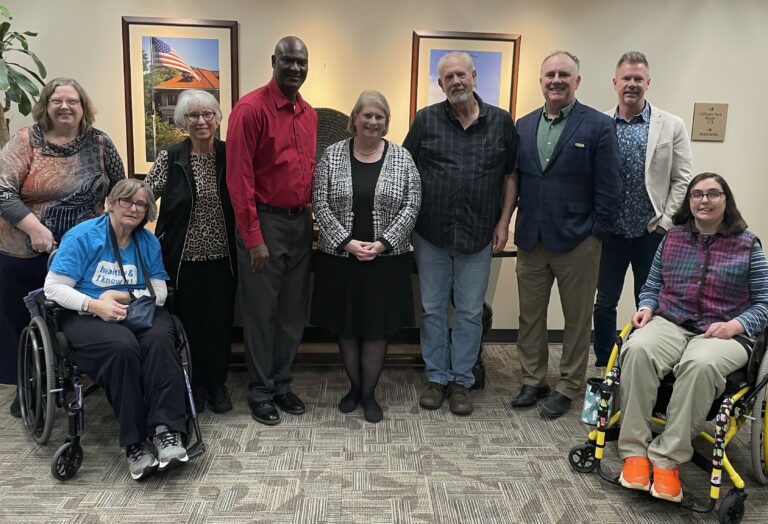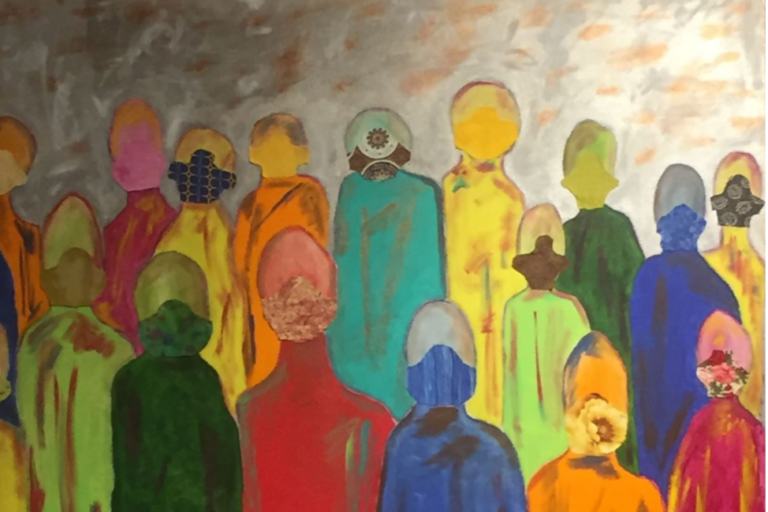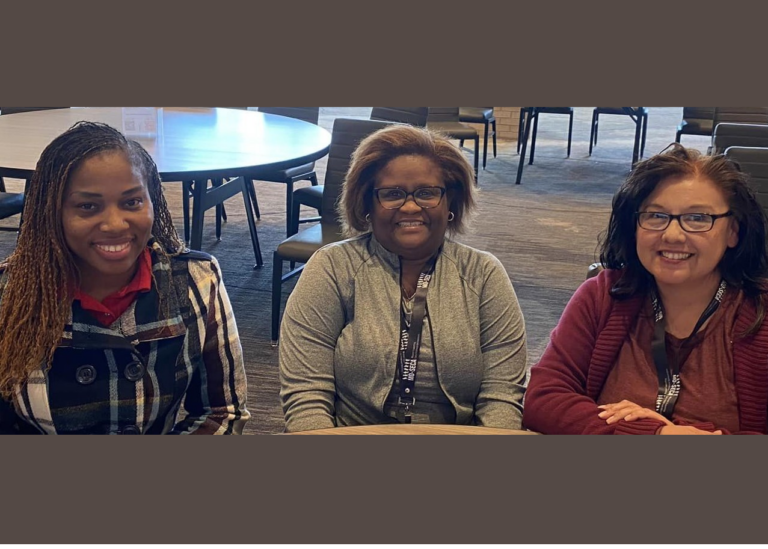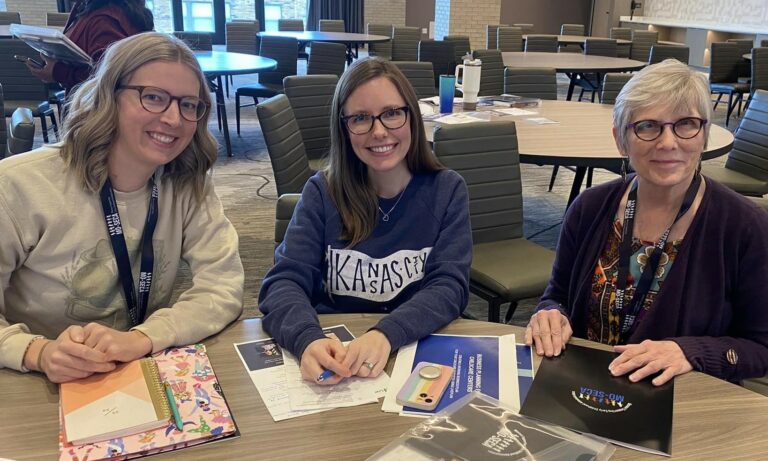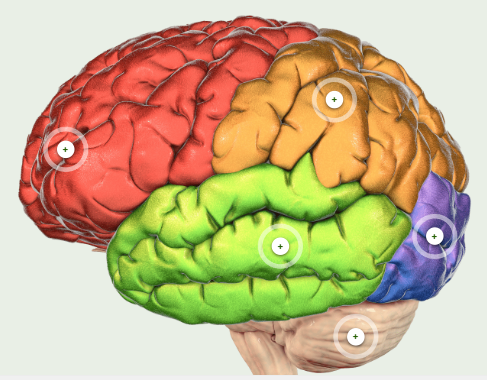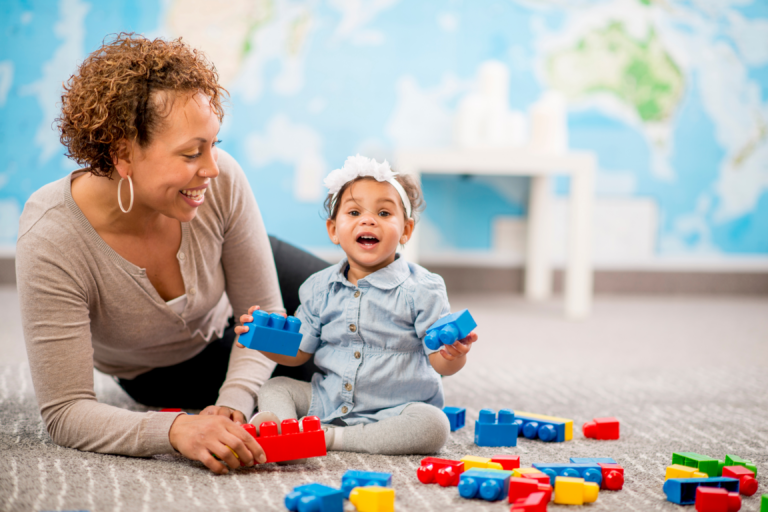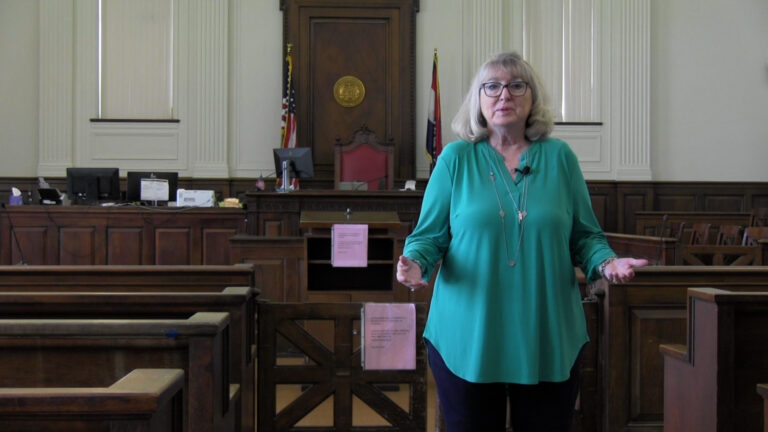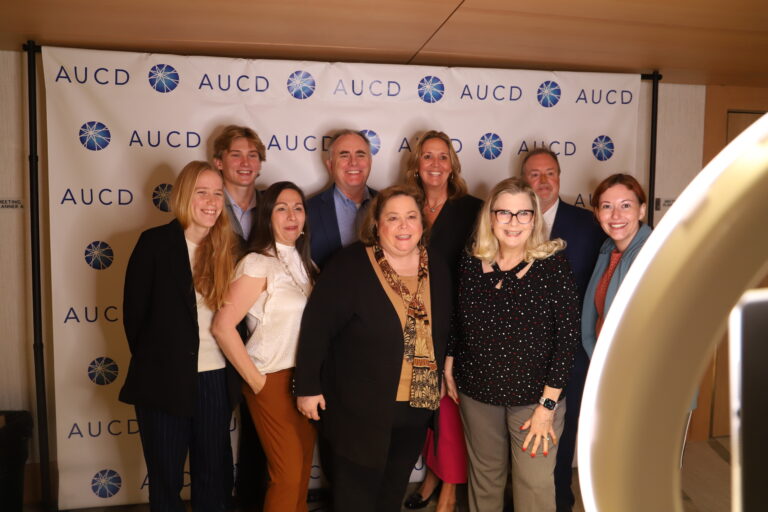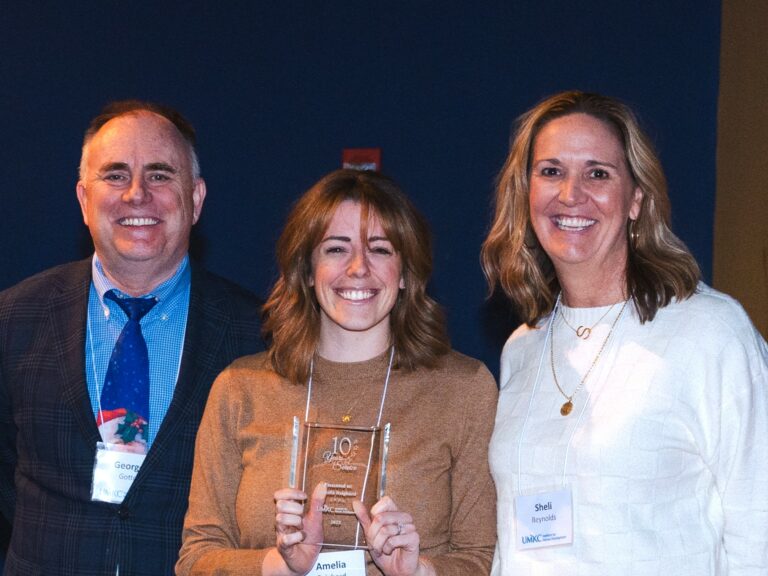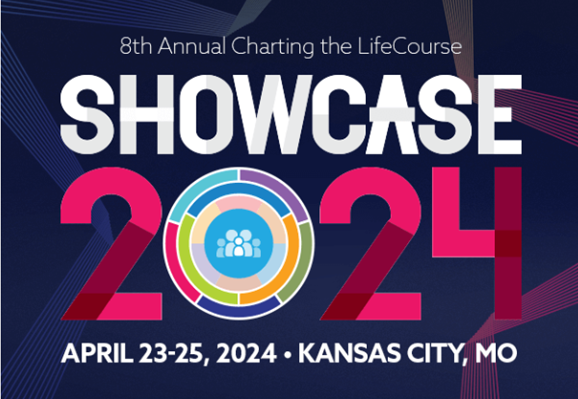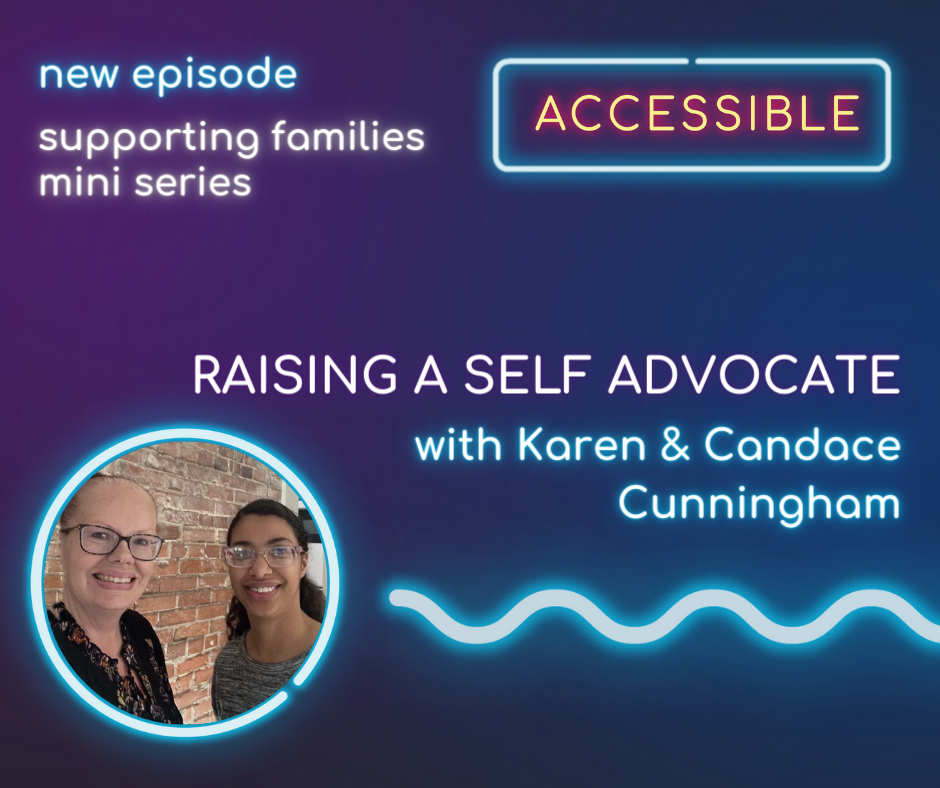
In Season 3 Episode 3 of ACCESSIBLE: The Podcast, Karen and Candace Cunningham, an amazing mother-daughter duo, talk about Karen’s role as mother and Candace’s first advocate. Learn about their journey through diagnosis to transitioning to adulthood. Hear the amazing story about how Karen taught Candace to advocate for herself and get out of her comfort zone.
LISTEN TO THE PODCAST: https://linktree.com/accessiblepod
READ THE TRANSCRIPT: https://bit.ly/3UykYbX
VIEW THE VIDEO: bit.ly/3U9dJFX
Accessible, the podcast that opens the door to disability leaders and their ideas, is hosted by George Gotto, director at the University of Missouri-Kansas City’s Institute for Human Development and Senior Research Assistant Amelia Reighard.
The University of Missouri-Kansas City’s Institute for Human Development (UMKC-IHD) is the federally designated University Center for Excellence in Developmental Disabilities (UCEDD) for the state of Missouri. It is a member of the Association of University Centers on Disabilities (AUCD) and one of 67 UCEDDs located in every state and United States territory. As an applied research and training center for human services at UMKC, the IHD reports to the Office of the Provost and serves as a bridge between the university and community.
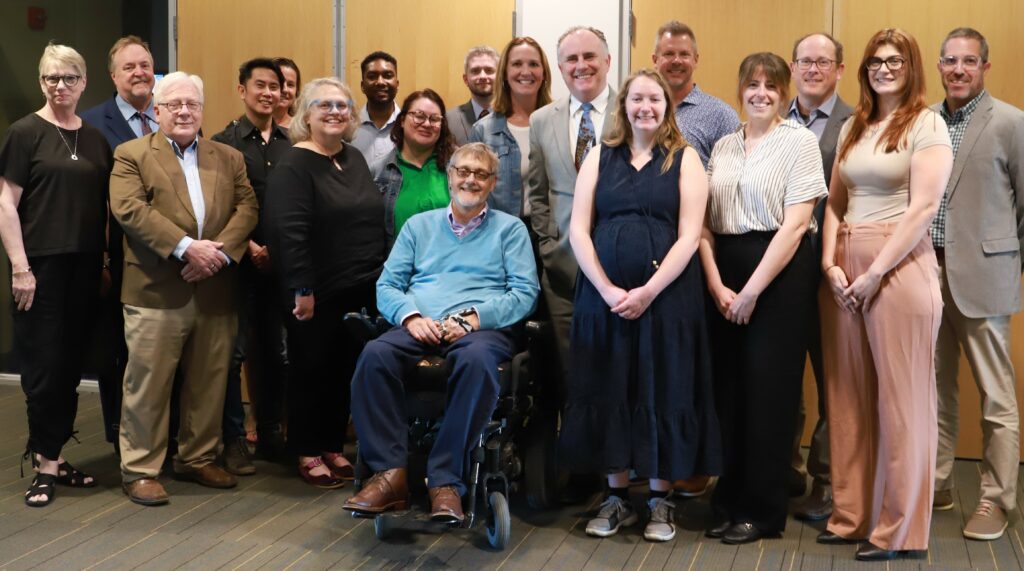
Pictured L-R: Nancy Carter (UMKC-IHD); Michael Abel (UMKC-IHD); John Colombo (KIDDRC); Rodney Samaco (AUCD); Rene Jamison (KU-LEND); Alexis Petri (UMKC-IHD); Chase Mulvaney (AUCD); Colette Canchola-Cox (UMKC-IHD); (front) John Tschida (AUCD); (back) Nathaniel Dare (MO-LEND); Michelle Reynolds (UMKC-IHD); George Gotto (UMKC-IHD); Helene Houston-Reed (UMKC-IHD); Brandon King (UMKC-IHD); Amelia Reighard (UMKC-IHD); Evan Dean (KS-UCEDD); Margeaux Whitehead (AUCD); Matthew Mosconi (KIRRDC).
The University of Missouri-Kansas City’s Institute for Human Development hosted leaders from the Association of University Centers on Disabilities (AUCD) and representatives from Kansas and Missouri for a regional open house. The goal was to explore new opportunities for collaborating on programs, funding, networking and more so each could better serve people with disabilities.
The University of Missouri-Kansas City’s Institute for Human Development (UMKC-IHD) is the federally designated University Center for Excellence in Developmental Disabilities (UCEDD) for the state of Missouri. It is a member of the Association of University Centers on Disabilities (AUCD) and one of 67 UCEDDs located in every state and United States territory.
Along with UMKC-IHD, members from the Kansas LifeSpan Institute (UCEDD), the Kansas Intellectual and Developmental Disabilities Research Center (KIDDRC), and the Missouri and Kansas Leadership Education in Neurodevelopmental and Related Disabilities (LEND) programs discussed:
- Fostering collaboration between the regional partners
- Informing the national AUCD organization on the needs of centers that serve people with disabilities in this part of the country
- Strengthening ties within the UCEDD network to better serve individuals with disabilities
As an applied research and training center for human services, UMKC-IHD reports to the Office of the Provost and serves as a bridge between the university and community.
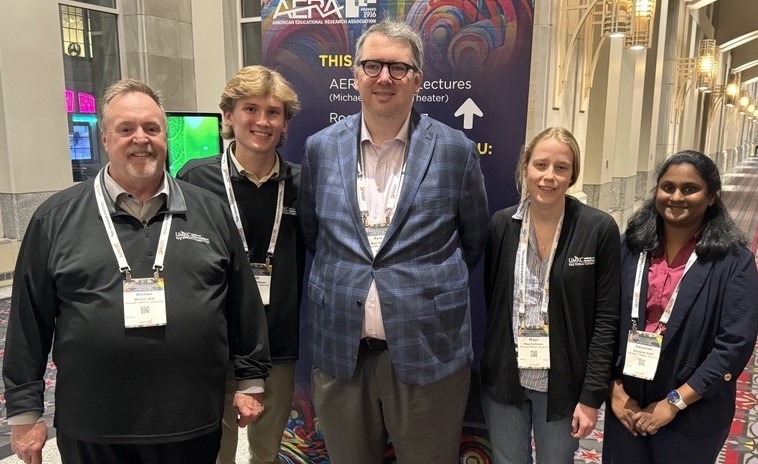
Pictured left to right: Michael Abel, Ph.D., director of the Early Childhood Innovation Center at UMKC’s Institute for Human Development; Nick Bollinger, research assistant; and senior research assistants Ryan Belew, Maya Szafraniec and Satya Golla.
Members of the Early Childhood Innovation Center from the University of Missouri-Kansas City’s Institute for Human Development gathered in Philadelphia as they presented papers on a couple of topics at the American Educational Research Association Conference this week.
Research Assistant Nick Bollinger discussed his paper on “Factors That Predict Staff Turnover in Early Childhood Education Programs.” His research is based on assessment data from a recently launched, robust quality-improvement initiative. It examines various administrative practices in early childhood programs that may affect staff turnover.
Senior Research Assistant Satya Golla presented a paper on The Relationship Between Administrative Program Quality and Organizational Equity in Early Childhood Programs. Her study examines 197 early learning programs that found a positive relationship between administrative program quality and organizational equity.
The University of Missouri-Kansas City’s Institute for Human Development (UMKC-IHD) is the federally designated University Center for Excellence in Developmental Disabilities (UCEDD) for the state of Missouri. It is a member of the Association of University Centers on Disabilities (AUCD) and one of 67 UCEDDs located in every state and United States territory. As an applied research and training center for human services at UMKC, the IHD reports to the Office of the Provost and serves as a bridge between the university and community.
The American Educational Research Association (AERA), a national research society, strives to advance knowledge about education, to encourage scholarly inquiry related to education, and to promote the use of research to improve education and serve the public good.
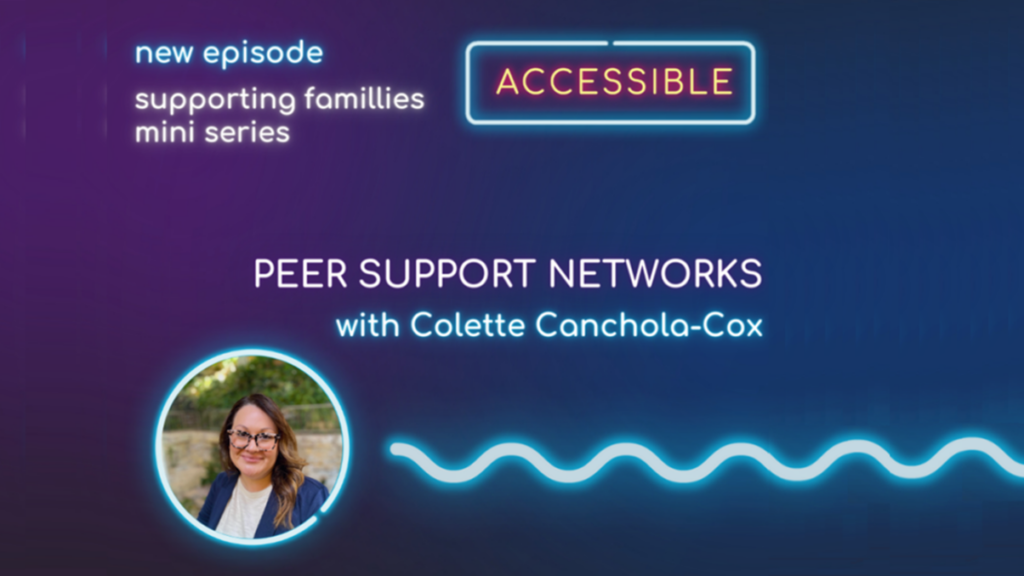
In Season 3 Episode 2, IHD Director George Gotto and Senior Research Assistant Amelia chat with Colette Canchola-Cox, director of UMKC-IHD’s Missouri Family to Family program. Colette talks about the social consequences of a developmental disability diagnosis and how a strong peer support network can have a positive impact.
LISTEN TO THE PODCAST: https://linktr.ee/accessiblepod
READ THE TRANSCRIPT: https://bit.ly/3xvv3x4
Accessible is the podcast that opens the door to hear disability leaders discuss their ideas.
Colette shares her personal experience as a mother of a son with Autism and talks about navigating the developmental disability system. Now, as a professional in the field, she leverages that knowledge to advocate for families in our state.
The University of Missouri-Kansas City’s Institute for Human Development (UMKC-IHD) is the federally designated University Center for Excellence in Developmental Disabilities (UCEDD) for the state of Missouri. It is a member of the Association of University Centers on Disabilities (AUCD) and one of 67 UCEDDs located in every state and United States territory. As an applied research and training center for human services at UMKC, the IHD reports to the Office of the Provost and serves as a bridge between the university and community.
https://mofamilytofamily.org/
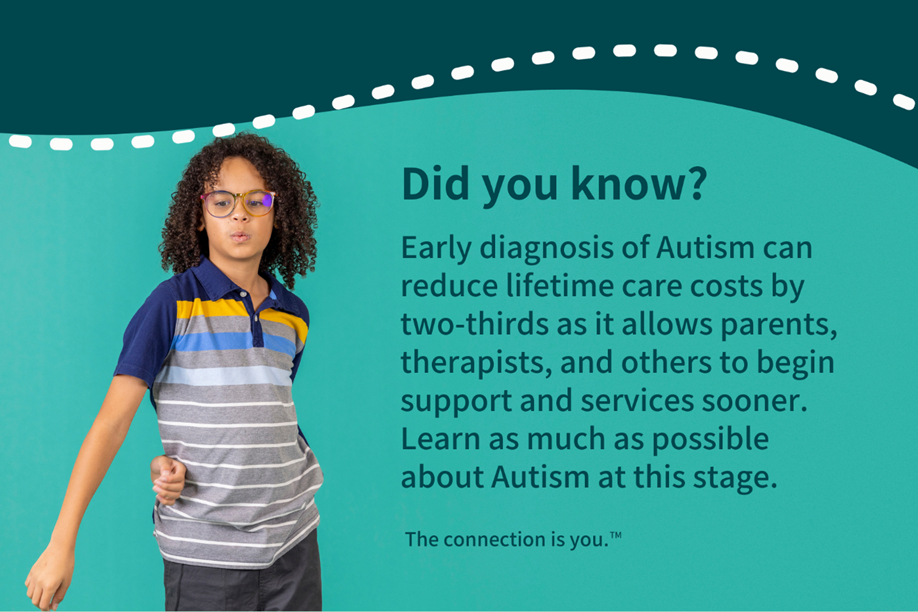
Join the University of Missouri-Kansas City’s Institute for Human Development as we honor the unique perspectives of people living with autism and support children with autism and their families, helping each child reach their full potential.
Foster inclusivity and connectedness while celebrating differences to promote autism acceptance and each individual’s unique abilities!
#UMKCIHD #mof2f #moactionnetwork #AutismAwarenessMonth
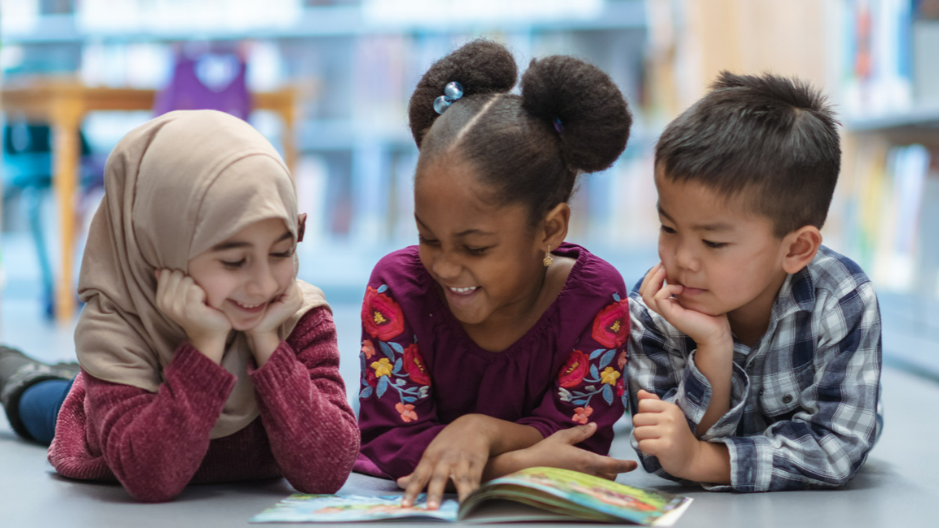
Welcome back to the third season of Accessible!
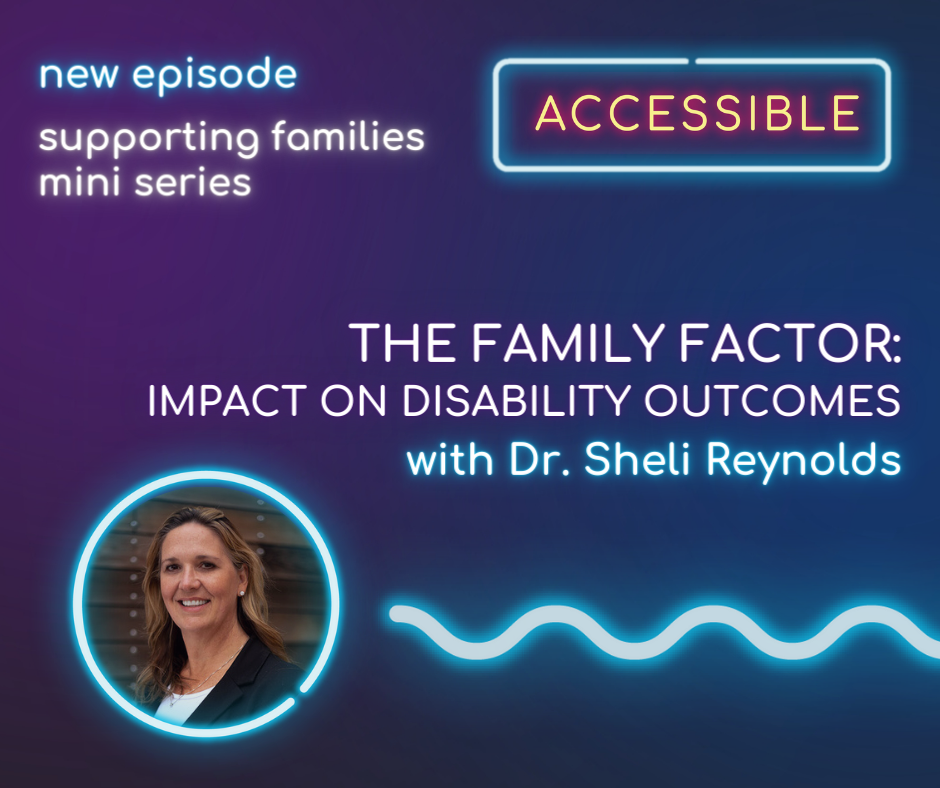
Accessible is the podcast that opens the door to disability leaders and their ideas. Accessible features the Institute of Human Development’s own director, George Gotto, and senior research assistant Amelia Reighard. Accessible features interviews and insights from leaders in the disability field. By listening you can gain knowledge for your own mind, career and professional development. In turn, share these ideas to help others learn from you.
In This Episode
In today’s episode, George and Amelia catch up with Sheli Reynolds, associate director here at UMKC’s Institute for Human Development and director of LifeCourse Nexus. Growing up as a sibling of someone with a disability, Sheli brings a personal perspective to her work in advocacy, systems change, and her development of the LifeCourse Tools framework. This was a fascinating conversation about the landscape of supporting families of individuals with disabilities and how the context of the family is vital in providing care in all areas.
Acronym Guide
- UCEDD – University Center for Excellence in Developmental Disabilities
- LEND – Leadership Education in Neurodevelopmental Disabilities
- HCBS – Home and Community Based Services
Resources in This Episode
- LifeCourse Nexus: https://www.lifecoursetools.com/
- LifeCourse Showcase – April 23-25, 2024 – Kansas City, Missouri: https://www.lifecoursetools.com/events/showcase-2024/
- Missouri Family to Family: https://mofamilytofamily.org/
- People First of Missouri: https://www.missouripeoplefirst.org/
- Community of Practice: Supporting Families Throughout the Lifespan – https://www.nasddds.org/projects/community-of-practice-supporting-families-throughout-the-lifespan/
- To learn more about the Turnbull Family: https://mn.gov/mnddc/ann-turnbull/ann-turnbull-10.html
Accessible is a partnership between the Missouri Leadership Education in Neurodevelopmental Disabilities – or LEND – and the Missouri University Center for Excellence of Developmental Disabilities. LEND’s purpose is to prepare graduate students for future work in the field of developmental disabilities. We hope you enjoy the conversation.
#UMKCIHD #LifeCourseTools #CommunityofPractice #disability #mof2f #supportingfamilies #leadership #AccessiblePod
Michelle Reynolds, senior associate director of the University of Missouri-Kansas City’s Institute for Human Development, talked about her personal experience of having a sibling with developmental disabilities as she spoke to an audience of more than 500 community leaders, social workers and advocates at the University of North Carolina’s Legacy Speaker Series in early March. The event focused on empowering individuals with intellectual or developmental disabilities.
Reynolds is a key developer of the Charting the LifeCourse framework and tools created for individuals and families. It uses plain language and descriptive imagery to describe guiding principles that help people plan, solve problems, manage transitions and explore at each stage of life, such as planning for retirement, managing health care or thriving with an intellectual or developmental disability.
She is a leading advocate for supporting families and self-advocates at a national level and has served on the President’s Committee for People with Intellectual Disabilities for former President Barack Obama.
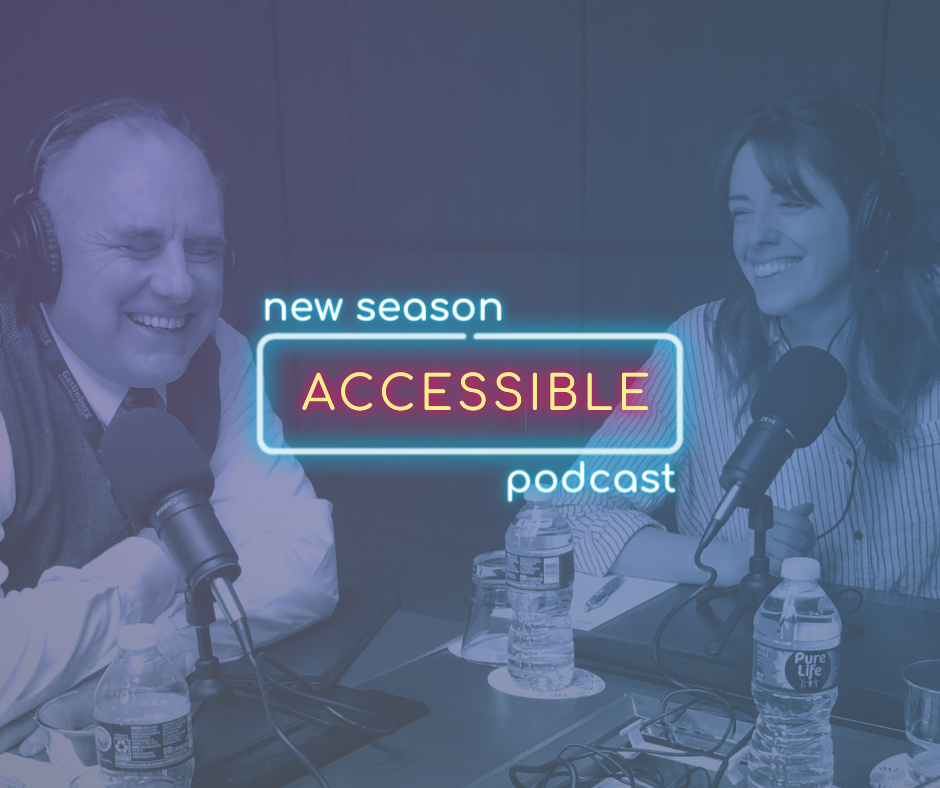
Guess who’s back and better than ever? Accessible – the Podcast – is returning for Season 3, and we couldn’t be more excited!
Get ready to dive into some eye-opening conversations with leaders in the disability field starting next Wednesday, March 27!
FOLLOW ACCESSIBLE NOW wherever you get your podcasts at https://linktr.ee/accessiblepod and catch every new episode as soon as it drops. Plus, for a more visual experience, subscribe to the UMKC-IHD YouTube channel at https://www.youtube.com/@umkcihd, and watch full video episodes of your favorite interviews. Don’t miss out!
#disability #leadership #UMKCIHD #AccessiblePod
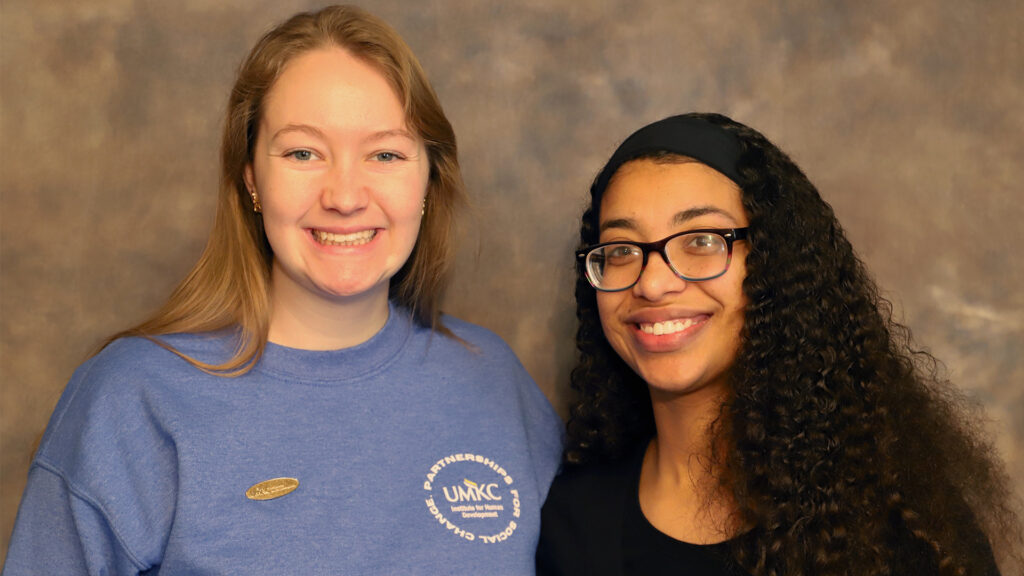
IHD continues its growth with the formation of a new team focused on outreach and increasing IHD’s visibility in the community and across the state. Comprised of Helene Houston-Reed and Candace Cunningham, the dynamic duo will attend events and conferences to build IHD brand awareness, reinforce our reputation and inform and brag about the great things IHD is doing to the people they meet.
Most recently, the pair attended the Blu Valley Special Needs Resources Fair and met with more than 70 individuals – and that was just on their first outing!
The team is targeting about 2-5 events and/or conferences each month.
If you would like IHD to attend an event of yours, send your information and request to Helene Houston-Reed.
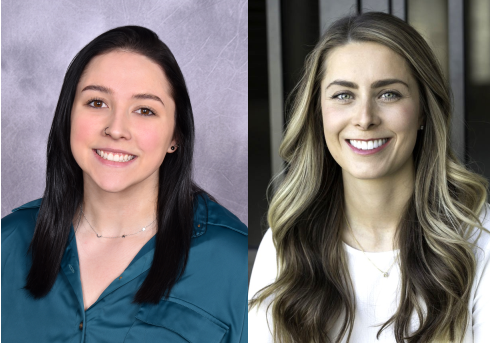
Left to right: Angelina Alpert and Ashley Donham.
The University of Missouri-Kansas City’s Institute for Human Development has taken a giant step in building its Interdisciplinary Leadership in Disability Studies Graduate Certificate program by awarding its first two scholarships to Angelina Alpert and Ashley Donham. Alpert is an employee at the Institute for Human Development.
Funded through a generous grant from The Rehabilitation Institute Foundation here in Kansas City, IHD awarded Alpert and Donham each with the Vivian Shepherd and Merrill Joslin Scholarship for Disability Studies, which covers full ILDS-related tuition costs for two of ILDS students for two semesters. The scholarship required that recipients must already work or plan to work in the disability field and have a grade-point average of 3.0 or higher.
The first recipient, IHD’s own Angelina Alpert, continues to impact policy work and systems change on Sheli Reynold’s team. Her primary project is working on the No Wrong Door Systems contract.
The second recipient, Ashley Donham, works for the Utah Department of Health and Human Services, Office of Substance Use and Mental Health. Donham says she aspires and works toward “improving state systems to compassionately see and more effectively support individuals with mental illness and developmental and intellectual disabilities; these systems include, but are not limited to, physical and behavioral healthcare, child and family services, specialized courts, and corrections.”
Watch these two future leaders as they grow throughout and after their time within the ILDS program.
Learn more about the ILDS Graduate Certificate Program at ILDS@umkc.edu.
Expanding capacity to embrace people with disabilities topped the agenda at The Institute for Human Development’s quarterly Advisory Team meeting in early March at the University of Missouri-Kansas City. As the University Center of Excellence for Developmental Disabilities (UCEDD) for the state of Missouri at UMKC, IHD’s top advisors focused squarely on how to expand the social scope for people with disabilities so interactions develop friends who don’t have disabilities and who do not serve as an individual’s staff.
Challenges to overcome include the fact that many people with disabilities have been segregated for most of their lives, starting at school age. Then, many are moved to sheltered workshops where they make less than minimum wage. Others may be moved from group services to individualized services, which further narrows a person’s social interactions and ability to form healthy friendships with others who may not have disabilities.
Cassie Webb, IHD principal investigator for the Health Equity program, talked about the importance of health equity, where everyone has a fair and just opportunity to attain their highest level of health.
Webb noted that, “Achieving this requires focused and ongoing societal efforts to address historical and contemporary injustices; overcome economic, social and other obstacles to healthcare; and eliminate preventable health disparities.”
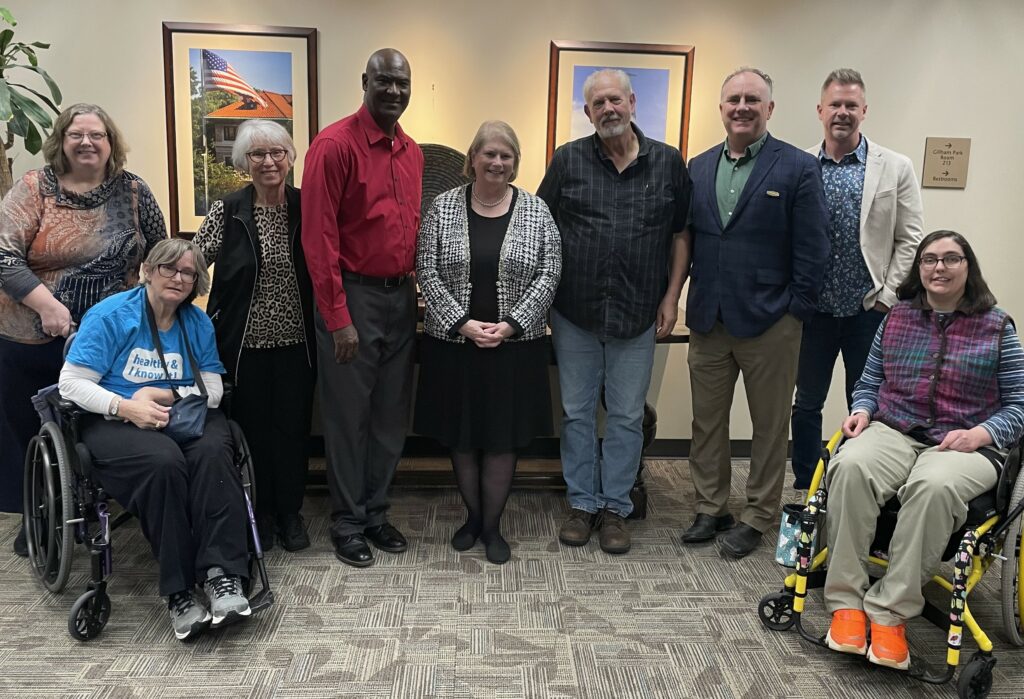
From left to right: Nancy Pennington, executive director, Missouri Association of County Developmental Disabilities Service Boards; Patti Goss, member of People First of Missouri; Sharon Williams, parent; Jeff Johnson, coordinator of Real Voices and Real Choices; Vicki Davidson, retiring director of the Missouri Developmental Disabilities Council (MODDC); Vim Horn, disability advocate, retired; George Gotto, director of the Institute for Human Development at UMKC; Brandon King, director of Operations at IHD, Nicole Noblet, self-advocate.
The University of Missouri-Kansas City’s Institute for Human Development – the University Center of Excellence in Developmental Disabilities for the state of Missouri – joins with the National Association of Councils on Developmental Disabilities in highlighting March as Developmental Disabilities Month.
This year’s theme focuses on “A World of Opportunities” – celebrating people and working together to remove obstacles. UMKC-IHD – just like NACDD – is working to build a community that’s committed to creating a world where everyone can do well and succeed.
Find out more about what UMKC’s Institute for Human Development is doing to support people with disabilities by viewing the News and Events page on our new website: www.ihd.umkc.edu.
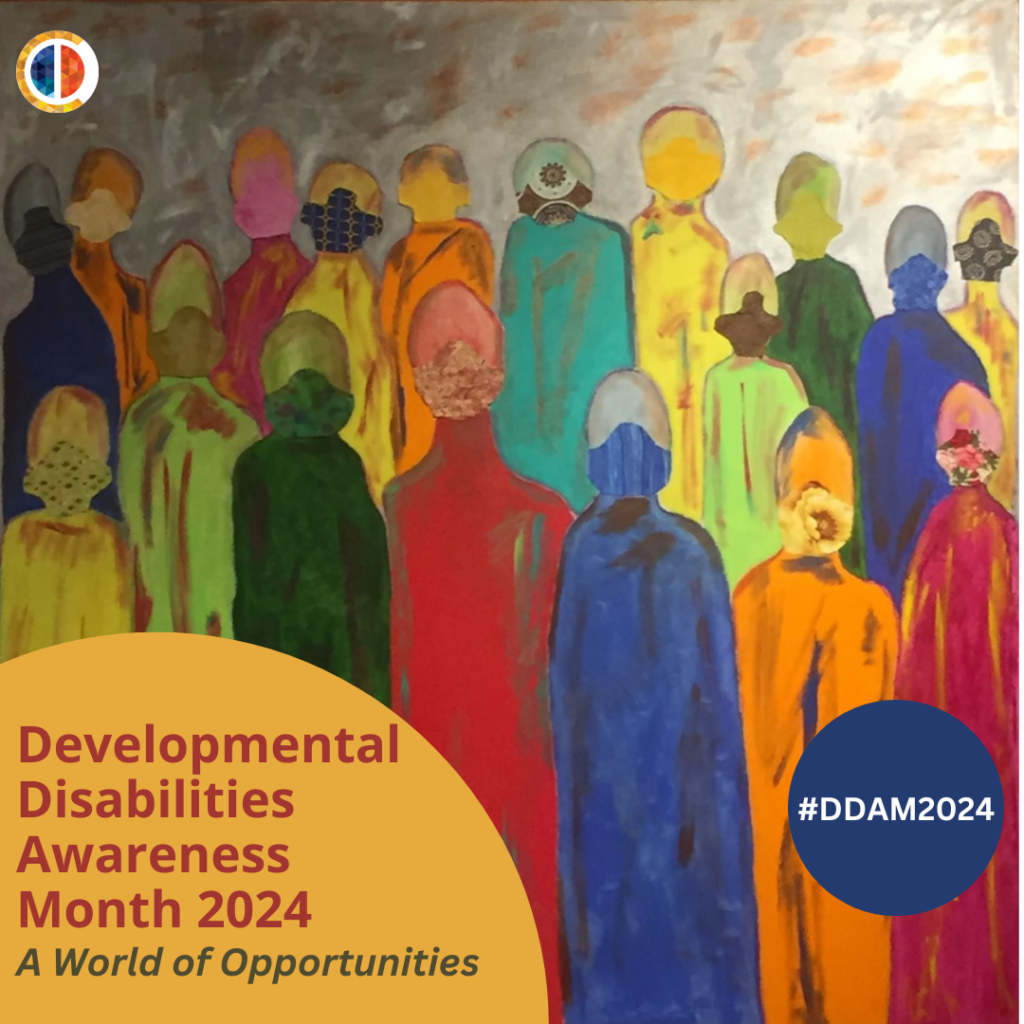
Register today!
- March 9-10 – Lake of the Ozarks
- April 5-6 – Branson
- April 19-20 – St. Louis
- April 26-27 – Rolla
- May 17-18 – Kansas City
- June 7-8 – Kirksville
- June 14-15 – Cape Girardeau
- June 28-29 – St. Joseph
You Support Your Team, Let Us Support You!
Missouri Supporting Early Childhood Administrators (MO-SECA) provides early childhood administrators across the state with the knowledge, skills and connections they need to effectively lead and operate sustainable, quality programs.
Program participants receive a stipend for participation, clock hours for state licensure requirements, free resources, subscriptions and more.
The Leadership Academy
Leadership Academy will inspire early childhood program administrators – directors, coordinators, and family childcare owner/operators – to consider the future of their programs and provide them with the skills and tools to motivate others. Leadership requires “forward, big picture thinking,” which can be challenging when you are putting out the daily fires that overwhelm you. These refreshing training sessions will encourage you to reflect on your program and consider new ways to lead. Connect with other leaders to learn from their experiences and share what is working for you!
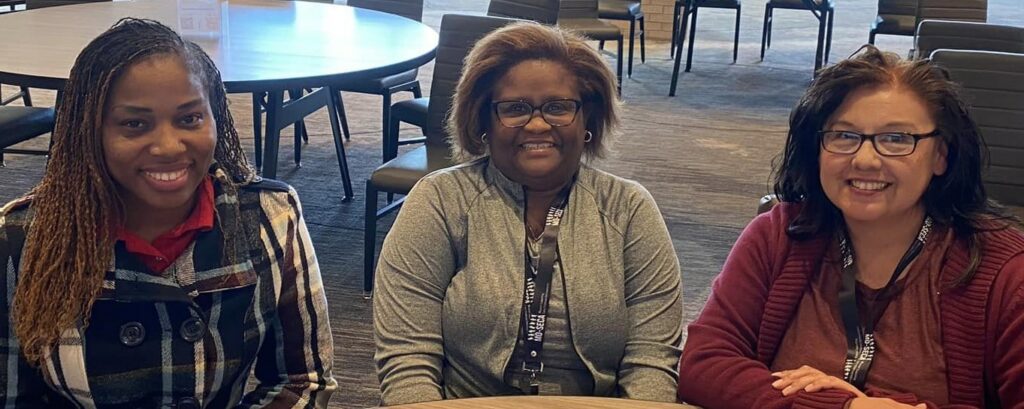
Register today!
- March 15-16 – Rolla
- March 22-23 – St. Louis
- April 12-13 – Maryville
- May 3-4 – Columbia
- May 31-June 1 – Springfield
- June 21-22 – Kirksville
- July 12-13 – Cape Girardeau
You Support Your Team, Let Us Support You!
Missouri Supporting Early Childhood Administrators (MO-SECA) provides early childhood administrators across the state with the knowledge, skills and connections they need to effectively lead and operate sustainable, quality programs.
Program participants receive a stipend for participation, clock hours for state licensure requirements, free resources, subscriptions and more.
The Business Academy
Business Academy offers valuable tools for improving the management of your program. Whether you are a director, coordinator, or family childcare owner/operator, you will find valuable tools for running an early childhood business and gain skills to use them effectively. Join us for these encouraging sessions, pick up some gems that will make your work life better, and drive change in your program to make it more efficient and effective. Rub shoulders with other program leaders to learn from their experiences and share what is working for you.
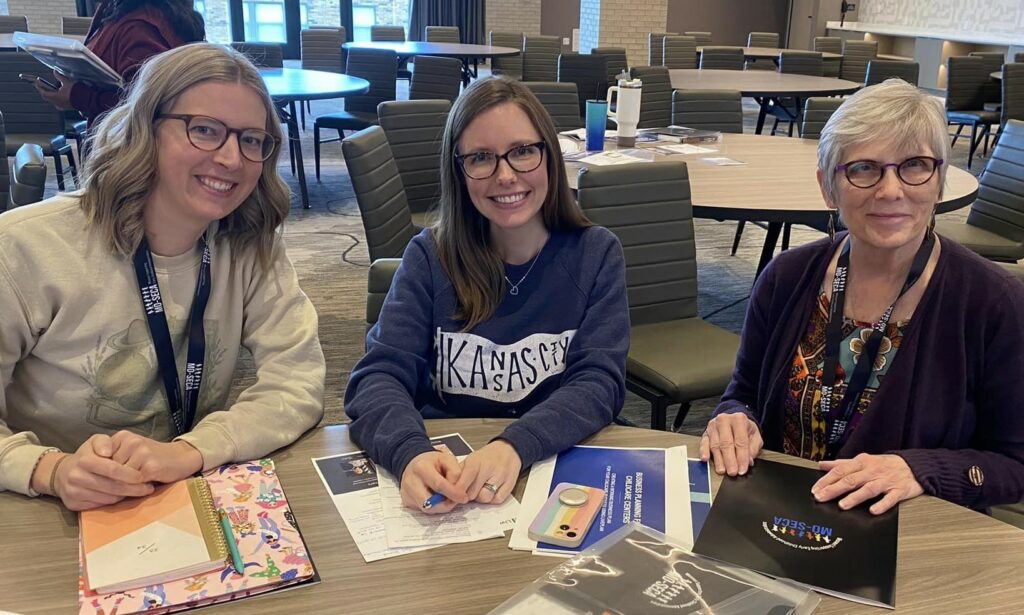
Sports injuries, car accidents, violence or even simple falls may cause a traumatic brain injury. Know the symptoms.
The University of Missouri-Kansas City’s Institute for Human Development, the University Center for Excellence in Developmental Disabilities for the state of Missouri at www.ihd.umkc.edu has just launched a NEW FREE TRAINING available at https://bit.ly/3SGbUzn to raise awareness of traumatic brain injuries – or TBIs.
This training highlights symptoms, treatments and provides prevention strategies.
Developed as an annual training requirement for Missouri Department of Health and Senior Services providers and direct care staff, the training can benefit a greater audience as brain injuries can often go undiagnosed as brain injuries occur more often than you might think. Certainly, every brain injury is different in terms of symptoms, affected areas of the brain and the outcome.
“Anyone can get a traumatic brain injury, certainly no one is immune,” according to Eric Hart, Pys.D., ABPP-CN, Board Certified Clinical Neuropsychologist, University of Missouri Healthcare. “It’s one of the more common neurological conditions that can and does occur across the lifespan.”
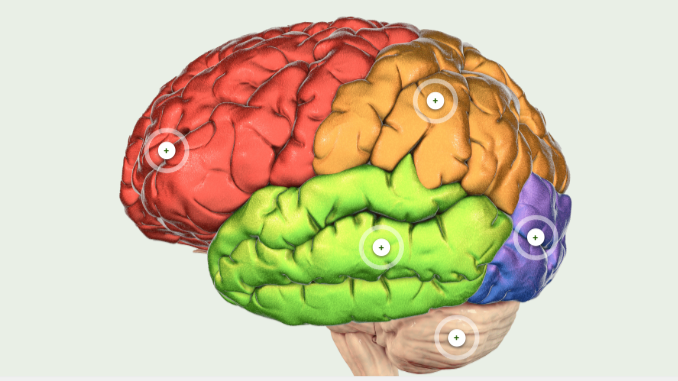
For individuals, families and health care providers, the FREE training serves as a convenient resource for anyone wanting a basic overview or refresher course.
The training features four modules:
- Brain Injury Basics
- Specific Populations (Youth, Aging, Rural)
- Treatments
- Special Topics (Employment, Community Access, etc.)
Symptoms may mimic other health issues, but generally fall into one of three categories:
- Cognitive
- Physical
- Behavioral/Emotional
General preventive strategies include:
- Using helmets and car seats properly
- Preventing falls
- Limiting alcohol and/or illicit drugs
“The best thing that we can do for kids regarding brain injury is to prevent them,” noted Dr. Jane Emerson, Professor of Clinical Medicine and Rehabilitation at Rusk Rehabilitation Hospital. “It’s much easier for you as parents and teachers to prevent a head injury than for me to treat one.”
Take the FREE training today!
The Early Childhood Innovation Center at the University of Missouri-Kansas City’s Institute for Human Development is recruiting early childhood administrators for free training in 2024.
The Missouri Supporting Early Childhood Administrators (MO-SECA) program provides early childhood administrators across Missouri with knowledge, skills, and connections to lead and operate sustainable, quality programs.
If you run an early childhood program – a family-owned, small or large-sized program – sign-up now and receive free group training, free one-on-one coaching and free business development tools and resources.
Hear ECIC Director Mike Abel, Ph.D., talk about the training and how it can help early childhood administrators like you manage your businesses better.
To learn more, visit MO-SECA.
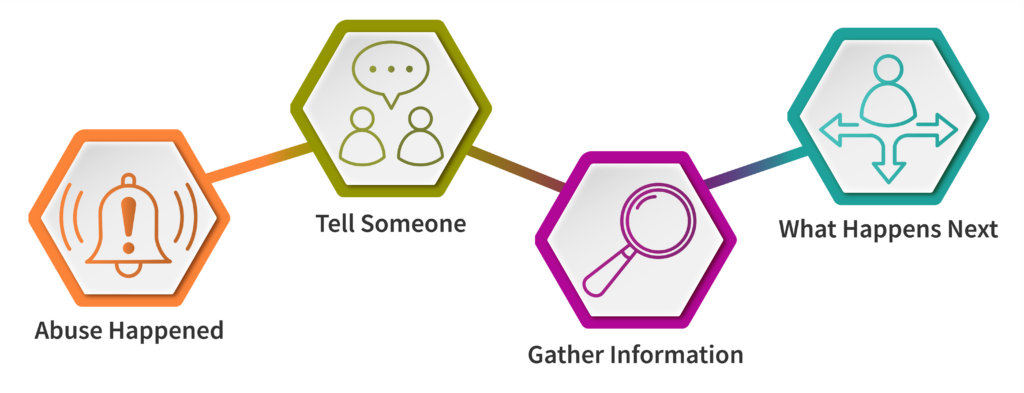
Knowing what to expect after experiencing abuse can be difficult – no matter whether the abuse is verbal, physical, sexual or financial. For individuals with an intellectual or development disability, navigating the state reporting and investigation process can be overwhelming.
The University of Missouri-Kansas City’s Institute for Human Development, the University Center for Excellence in Developmental Disabilities for the state of Missouri, in cooperation with the Missouri Developmental Disabilities Council, has published a new online resource called After Abuse: Resources for Missourians with Disabilities to help people with disabilities learn about abuse and what happens when it is reported.
The project includes supportive toolkits that include overviews, easy readers and videos that guide survivors and their allies through the process of understanding abuse. Survivors learn how to make a report, participate in the investigation and work through what happens after the investigation.
“Once a person reports the abuse to the state investigation systems, so much is out of the individual’s control,” says Amelia Reighard, principal investigator for the project. “These resources highlight opportunities where survivors can make decisions regarding their personal safety, their own healing and own their own story and experience after abuse.”
For more information on After Abuse: Resources for Missourians with Disabilities, go to www.AfterAbuseMoGuide.com.
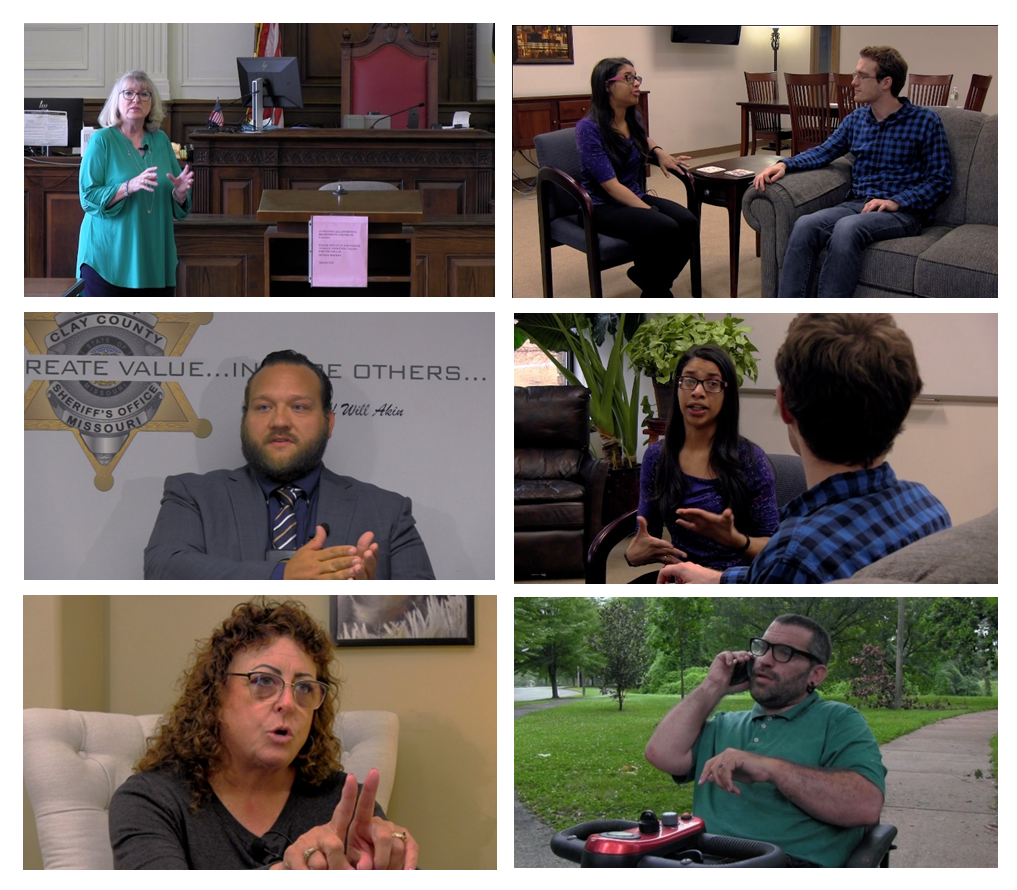
In November, Institute for Human Development employees connected with leaders from University Centers for Excellence in Developmental Disabilities across the country for the national Association for University Centers on Disabilities (AUCD) conference in Washington, D.C.

UMKC IHD Presenters
- George Gotto, Ph.D. – Leading Change: Finding Connections within a Big Network
- Michelle “Sheli” Reynolds, Ph.D. and Meghan LaMarche – Why Training Isn’t Enough: Promoting Core Competency Development to Equip Leaders Implementing Person-Centered Practices
- Michael Abel, Ph.D. – “Supporting Children with Disabilities Through Professional Development Trainings and Coaching in Early Intervention: Applying models for Culturally Responsive Practice”
Poster Sessions
Michelle “Sheli” Reynolds, Ph.D. – Supporting Families: An Updated National Agenda for Supporting Families
Others, such as Jodi Arnold, Maya Szafraniec and Nick Bollinger showcased the Early Childhood Innovation Center with a booth and materials to educate conference attendees about the good work the ECIC is doing with early childhood administrators by teaching business and leadership skills through the Missouri Supporting Early Childhood Administrators (MO-SECA) program, building the early childhood workforce for the future and assessing and coaching teachers through the Quality Assurance Report program, which strives for continuous improvement to support early childhood programs.

One of the key pillars of the LifeCourse Nexus Center is building systems and policies that support people with disabilities. Now, a free webinar focuses on family support and understanding the policies that support families and family caregivers for trainees.
The University of Missouri-Kansas City’s Institute of Human Development Associate Director Michelle Reynolds, Ph.D., joins with two others, Tamar Heller with the Department of Disability and Human Development at the University of Illinois at Chicago and Jill Kagan, program director for the ARCH National Respite Network and Resource Center for the presentation.
Hosted by the Association for University Centers on Disabilities, the webinar gives participants:
- Background on the history of family support
- Insight into current needs of families and family caregivers
- An overview of policies and practices of respite
When it comes to dedication, one employee at the University of Missouri-Kansas City’s Institute for Human Development has staying power! Leisha Manning has served more than 40 years with IHD’s support staff in a variety of administrative rolls, largely keeping the bills paid. She has seen people come and go through the years, but her service has been rock-steady.
Leisha Manning joins with 20 other employees who were also recognized in December 2023 for their years of service by IHD Director George Gotto, Ph.D., and Associate Director Michelle Reynolds, Ph.D.
Each employee was recognized for the five-year milestones they’ve achieved.
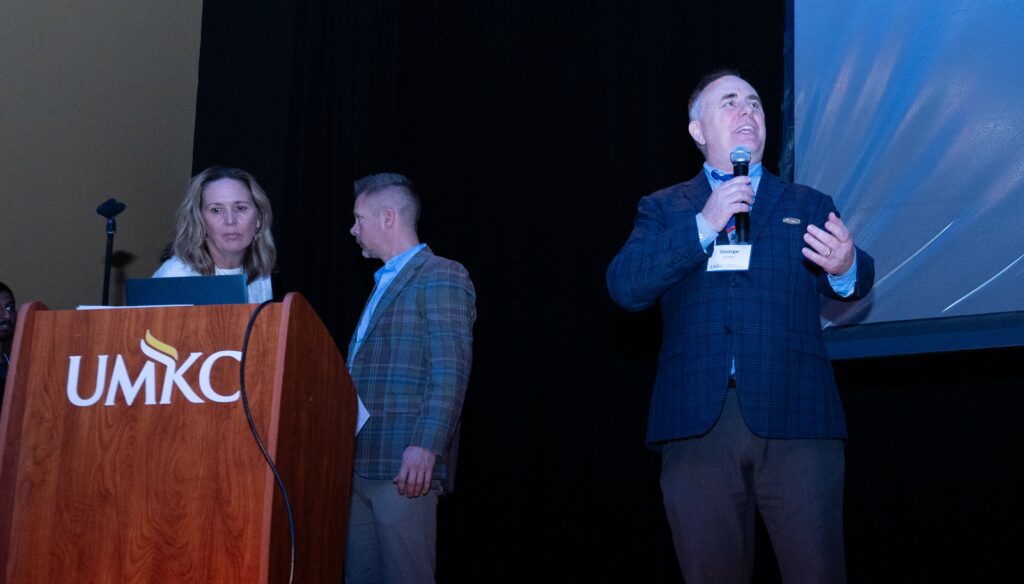
Service Award Recipients
- 40 Years
- Leisha Manning
- 25 Years
- Christina Hileman
- Michelle Reynolds, Ph.D.
- 20 Years
- Brandon King
- Katharine Ragon
- Jane St. John
- 15 Years
- Jodi Arnold
- Carol Calhoun
- 10 Years
- Mike Abel
- Kelli Barton
- Loni Davenport
- George Gotto
- Morgan Hudson
- Melissa Newkirk
- Amelia Reighard
- Megan Snyder
- Five Years
- Nancy Carter
- Danielle Chiang
- Candace Cunningham
- Megan LeMarche
- Gerardo Martinez
- Maria McAhan
April 23-25th, 2024
The Showcase is more than a conference; it’s a celebration! As we convene in Kansas City, we share and learn about how the CtLC principles interconnect to drive transformational change for all – all life stages and life domains in all practice areas, types of support and levels of change.
We can’t wait to welcome you for another year of showcasing the interconnection of all aspects of the CtLC framework and how the integration of this approach equips and empowers people, families, programs and systems to explore, plan, problem-solve and take action!
